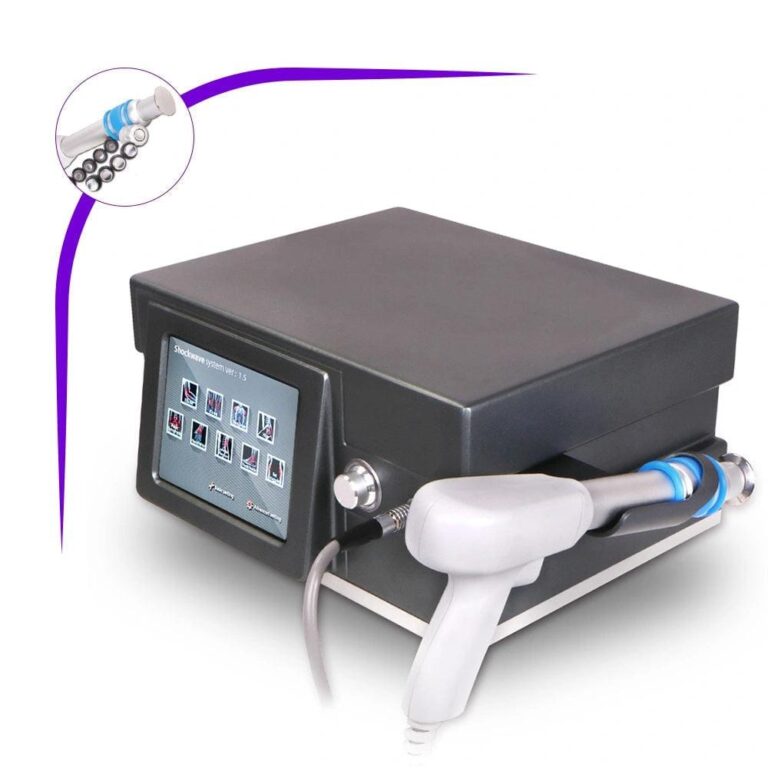Is Mili Birth Control Right for You? Assessing its Effectiveness and Suitability
Are you considering starting a birth control regimen but feeling overwhelmed by the multitude of options available? Look no further – Mili Birth Control might just be the answer you’ve been searching for. In this blog post, we will delve into the effectiveness and suitability of Mili as a contraceptive method, providing you with all the information you need to make an informed decision about your reproductive health.
With its unique formulation and proven track record, Mili stands out among other birth control pills on the market. Whether you’re new to contraception or looking to switch things up, understanding how Mili works and its potential benefits is essential. So let’s dive in and explore what makes Mili Birth Control worth considering!
Outline for “Is Mili Birth Control Right for You? Assessing its Effectiveness and Suitability” blog article:
Curious about whether Mili Birth Control is the right choice for you? Look no further! In this blog post, we will assess the effectiveness and suitability of Mili as a contraceptive method. We’ll explore its clinical studies and compare it to other birth control pills on the market. Additionally, we’ll delve into indications, dosage, potential side effects, warnings, precautions, drug interactions, and usage in specific populations. We’ll discuss alternative options to Mili Birth Control. Stay tuned for an informative and comprehensive guide that will help you make an informed decision about your reproductive health.
What is Mili Birth Control?
Mili Birth Control, also known as ethinyl estradiol and norgestimate tablets, is a popular hormonal contraceptive option for women. It belongs to the category of combination pills that contain both estrogen and progestin hormones. These tablets are taken orally once a day, preferably at the same time each day.
The combination of these hormones in Mili works together to prevent pregnancy by inhibiting ovulation, thickening cervical mucus to make it harder for sperm to reach the egg, and thinning the lining of the uterus to prevent implantation. It is important to note that Mili does not protect against sexually transmitted infections (STIs) and should only be used as a method of contraception.
Effectiveness of Mili Birth Control
When it comes to choosing a birth control method, effectiveness is one of the key factors to consider. So, how effective is Mili Birth Control? Well, let’s take a closer look.
Clinical studies have shown that Mili Birth Control has been proven to be highly effective in preventing pregnancy when used correctly. In fact, it boasts an impressive success rate of over 99%. This means that out of every 100 women using Mili as their primary form of contraception for one year, less than one woman may become pregnant. That’s pretty reassuring!
Mili works by combining two hormones – estrogen and progestin – which work together to prevent ovulation and thicken cervical mucus, making it difficult for sperm to fertilize an egg. And with such a high effectiveness rate, you can feel confident in your choice if you decide that Mili Birth Control is right for you.
Clinical Studies on Mili Birth Control
Extensive clinical studies have been conducted to evaluate the effectiveness and safety of Mili birth control. These studies involved a large number of women from diverse backgrounds, ensuring that the results are reliable and applicable to various populations.
The findings from these studies have shown that Mili is highly effective in preventing pregnancy when taken as directed. In fact, it has been found to be more than 99% effective when used correctly. This makes it one of the most reliable options available for birth control.
Additionally, the studies also assessed the side effects and tolerability of Mili. The majority of participants reported minimal side effects such as nausea or headaches, which were generally mild and temporary. These clinical trials provide strong evidence supporting the safety and efficacy of Mili birth control for women seeking a reliable contraceptive option.
Comparison of Mili with Other Birth Control Pills
When it comes to choosing the right birth control pill, it’s essential to consider all your options. Mili is a popular choice, but how does it compare to other birth control pills on the market? Let’s take a closer look.
One key factor in comparing Mili with other birth control pills is its effectiveness. Clinical studies have shown that Mili has a high success rate in preventing pregnancy when taken as directed. However, it’s important to note that individual results may vary depending on factors such as adherence and metabolism.
Another aspect to consider is the hormone dosage in Mili compared to other pills. Different formulations may contain varying levels of hormones, which can affect their side effects and suitability for different individuals. It’s crucial to discuss your medical history and any concerns with your healthcare provider before starting any new contraceptive regimen.
Remember, choosing the right birth control method is a personal decision that should be based on thorough research and consultation with your doctor or gynecologist. They will be able to provide you with tailored advice based on your specific needs and health considerations. Stay informed and empowered when making decisions about your sexual health!
Suitability of Mili Birth Control
When considering any form of birth control, it’s important to assess its suitability for your specific needs and circumstances. Mili Birth Control is designed to be an effective contraceptive option, but it may not be the right choice for everyone.
Before starting Mili tablets, it’s crucial to discuss your medical history with your healthcare provider. They will evaluate whether this particular birth control pill is suitable based on factors such as age, previous health conditions, and lifestyle habits. Additionally, they will consider any potential risks or contraindications that could affect the effectiveness or safety of Mili Birth Control in your case. Remember, finding the right contraceptive method requires a personalized approach tailored to you!
Indications and Usage of Mili Tablets
Mili tablets are a popular choice for birth control among women. These small and easy-to-swallow pills contain a combination of hormones that effectively prevent pregnancy when taken as directed. The indications for using Mili include preventing pregnancy, regulating menstrual cycles, and reducing the symptoms of premenstrual dysphoric disorder (PMDD).
To use Mili tablets, it is important to follow the instructions provided by your healthcare provider. Typically, you will start taking one tablet daily on the first day of your menstrual cycle or on the first Sunday after your period begins. It’s crucial to take the pills at the same time every day to ensure maximum effectiveness. Remember that while Mili can provide protection against unwanted pregnancies, it does not protect against sexually transmitted infections (STIs), so additional methods may be needed if STI prevention is a concern.
Understanding how to properly use Mili tablets is essential for their effectiveness in preventing pregnancy and managing certain conditions like PMDD. By following the indications and usage guidelines provided by healthcare professionals, women can make informed decisions about whether Mili birth control is right for them and their individual needs.
Dosage and Administration of Mili Tablets
When it comes to taking Mili birth control tablets, understanding the appropriate dosage and administration is crucial. The recommended dosage for Mili is one tablet taken daily at the same time each day. It’s important to follow this schedule consistently to ensure maximum effectiveness.
To make it easier to remember, many women choose to take their Mili pill with a glass of water before bedtime or after a meal. This routine helps create a habit that reduces the chances of missing a dose. It’s also essential to read and follow the instructions provided by your healthcare provider or pharmacist regarding how to start and continue taking Mili tablets properly.
Potential Side Effects and Warnings of Mili Birth Control
Like any medication, Mili birth control may come with potential side effects that users should be aware of. These side effects can vary from person to person, so it’s important to consult with your healthcare provider before starting this contraceptive method.
Some common side effects reported by users include nausea, headache, breast tenderness, and changes in menstrual bleeding patterns. While these symptoms are typically mild and temporary, it’s still crucial to discuss them with your doctor if they persist or become bothersome. Additionally, there is a small risk of more serious complications such as blood clots or stroke associated with hormonal contraceptives like Mili. It’s essential to understand these risks and discuss them thoroughly with your healthcare provider.
Being informed about the potential side effects and warnings is an important step in deciding whether Mili birth control is right for you. Your doctor will be able to provide personalized guidance based on your medical history and individual needs. Remember that every woman is unique – what works well for one may not work the same way for another.
Precautions and Considerations for Use
When it comes to using any form of birth control, it’s important to be aware of the precautions and considerations for use. Mili Birth Control is no exception. Before starting or continuing with Mili, there are a few things you should keep in mind.
It’s crucial to inform your healthcare provider about any allergies or medical conditions you may have. Certain health issues can affect the suitability of Mili for you, so it’s essential to discuss this beforehand. Additionally, if you’re taking any other medications or supplements, make sure to let your healthcare provider know as well. Some drugs can interact with Mili and potentially reduce its effectiveness.
Being informed about the precautions and considerations for using Mili Birth Control will help ensure that it is suitable for you and that you can use it safely and effectively as part of your contraceptive plan. Always consult with your healthcare provider before starting or changing any form of birth control medication.
Interactions with Other Drugs
When it comes to taking any medication, it’s important to be aware of potential interactions with other drugs. The same goes for Mili birth control. Certain medications can affect the effectiveness of Mili or increase the risk of side effects.
It’s crucial to inform your healthcare provider about all the medications you’re currently taking, including prescription drugs, over-the-counter medicines, and even herbal supplements. They will be able to assess whether there are any potential interactions that could impact the effectiveness of Mili or pose a risk to your health. Remember, safety first when it comes to combining different medications!
Use in Specific Populations
Mili birth control is a suitable option for many individuals, but it’s important to consider specific populations. For women who are pregnant or breastfeeding, Mili is not recommended as it may have adverse effects on the baby. Additionally, Mili should be used with caution in women over 35 years old and those who smoke due to an increased risk of cardiovascular complications.
It’s essential to consult with your healthcare provider before starting Mili if you have any underlying medical conditions such as high blood pressure, diabetes, or liver disease. Individuals with a history of blood clots or certain types of cancer should also discuss their eligibility for using Mili. Your doctor can assess your individual circumstances and help determine if Mili is the right choice for you.
Alternatives to Mili Birth Control
When it comes to birth control options, Mili is just one of many choices available to women. If you’re looking for alternatives, there are a few routes you can explore.
One option is to consider other combination pills. These are oral contraceptives that contain both estrogen and progestin, similar to Mili. However, the specific formulation may vary from brand to brand, so it’s important to consult with your healthcare provider about which one might be the best fit for you.
Another alternative worth considering is non-hormonal birth control methods. While Mili works by regulating hormones in your body, non-hormonal options like condoms or copper IUDs provide contraception without altering your hormonal balance.
Remember that each woman’s needs and preferences are unique when it comes to birth control. It’s essential to have an open discussion with your healthcare provider about what options might be suitable for you based on factors such as lifestyle, medical history, and personal preferences.
Other Combination Pills
When it comes to birth control options, Mili is just one of many combination pills available. These pills contain both estrogen and progestin hormones, working together to prevent pregnancy. Other combination pills on the market include Yasmin, Ortho Tri-Cyclen, and Loestrin.
Each pill may have slight variations in hormone levels and dosage schedules, but they all work in a similar way. They suppress ovulation, thicken cervical mucus to block sperm from reaching the egg, and thin the lining of the uterus to make implantation less likely. It’s important to consult with your healthcare provider who can help determine which combination pill is right for you based on your individual needs and medical history.
Non-hormonal Birth Control Options
For those who want to explore alternatives to hormonal birth control, there are a variety of non-hormonal options available. These methods work by preventing sperm from reaching the egg or by inhibiting fertilization altogether.
One popular non-hormonal option is the copper intrauterine device (IUD). This small T-shaped device is inserted into the uterus and can provide long-lasting contraception for up to 10 years. Another option is barrier methods such as condoms or diaphragms, which physically block sperm from entering the cervix. These methods offer flexibility and do not interfere with natural hormone levels. It’s important to discuss these options with your healthcare provider to determine which method may be best suited for you.
Conclusion
After assessing the effectiveness and suitability of Mili birth control, it is clear that this contraceptive option can be an excellent choice for many individuals. With a high success rate in preventing pregnancy and providing additional benefits such as lighter periods and reduced acne, Mili has proven to be a reliable and versatile option.
However, it is essential to remember that every person’s body is unique, and what works for one may not work for another. It is crucial to consult with your healthcare provider before starting any new medication or contraceptive method. They will consider your medical history, lifestyle, and personal preferences to help determine if Mili birth control is right for you.
If Mili does not meet your specific needs or preferences, there are alternatives available. Other combination pills offer similar benefits but may vary in hormone dosage or formulation. Non-hormonal options such as condoms or copper IUDs are also worth considering for those who prefer hormone-free contraception.
While Mili birth control offers impressive effectiveness rates and numerous benefits, the decision ultimately lies with you and should be made under the guidance of a healthcare professional who understands your individual needs. Take charge of your reproductive health by making infomed choices about contraception!







